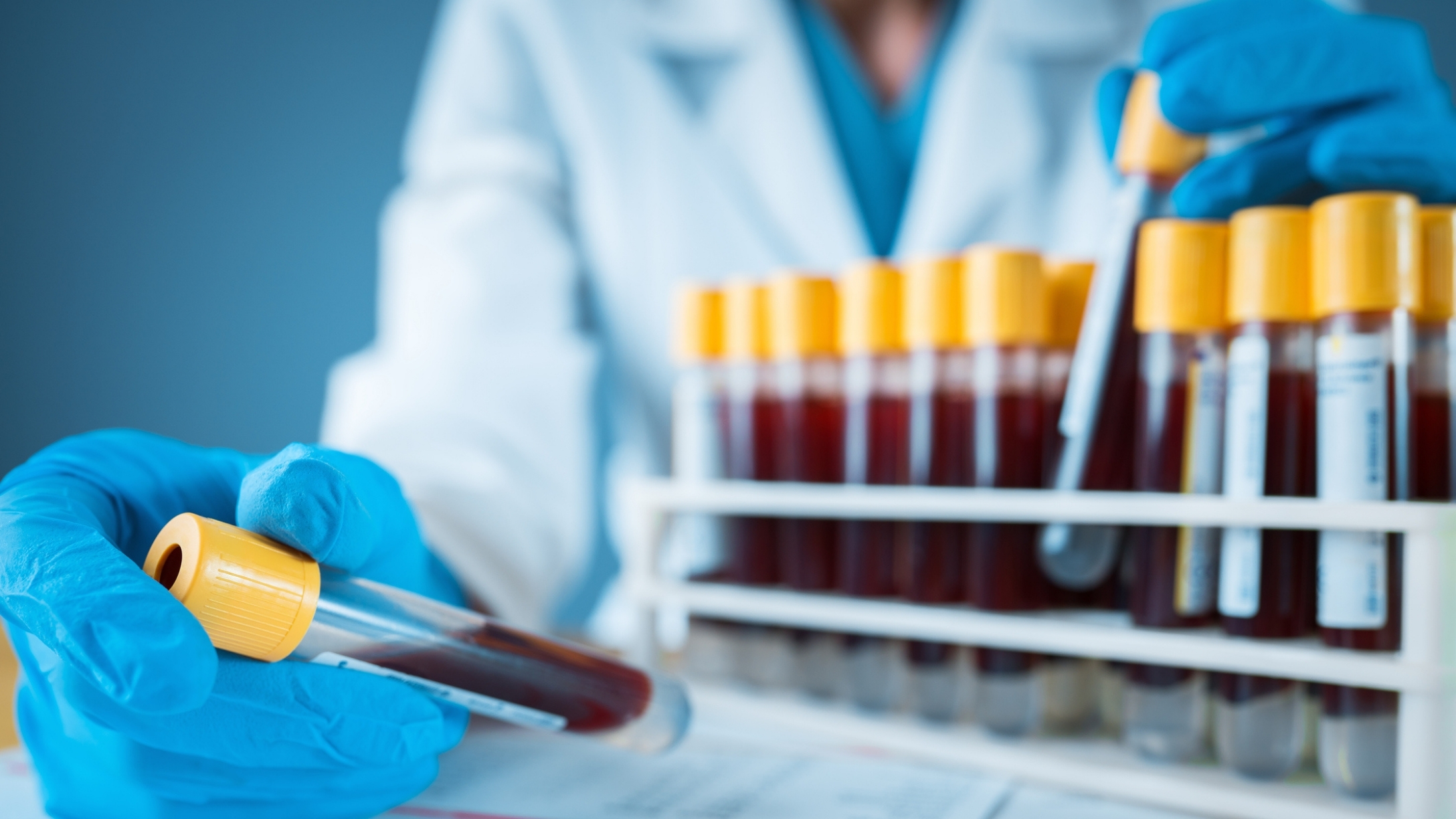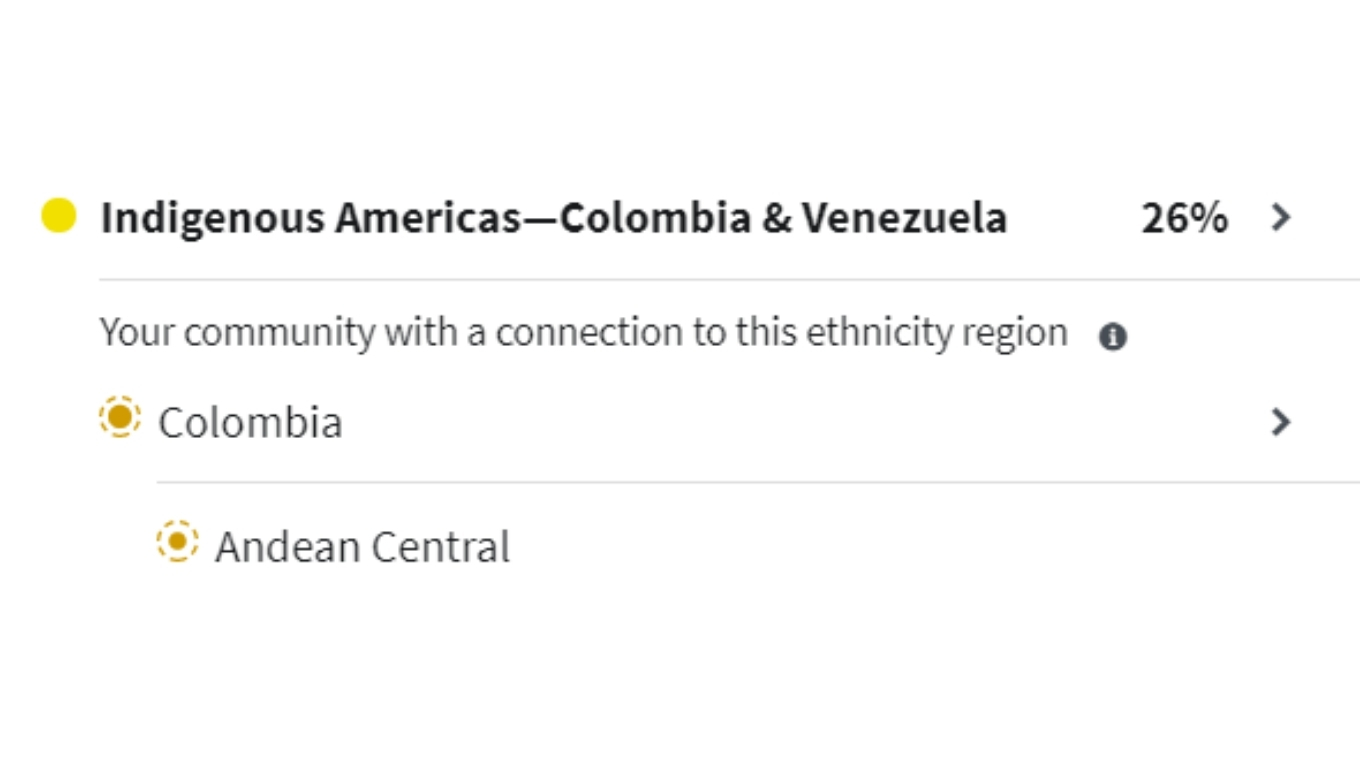
Many people grow up with a sense of their family history. Whether it's grandparents telling stories about the old country or more in-depth ancestry with photos and documents, many people have a general idea of how their family got to where they are today.
Me, I've got nothing.
Well, not nothing exactly. I just don't have a whole lot to work with. I grew up in a single-parent household. My mom was adopted from Colombia, and though she's tried to find out more about her roots over the years, she's hit a lot of dead ends.
There've been some big changes in DNA testing in recent years.
Nowadays, things are a little different. There are more tools than ever to learn about your roots. From sophisticated ancestry databases to scientific DNA testing, the options are truly endless.
That said, there are a lot of skeptics.
I have no shame in saying I was one of them. Sending away a vial of spit didn't seem like the route to answers for me. Even when I was gifted an AncestryDNA kit, I wasn't entirely sure I was going to go through with it.
I may have read one too many horror stories on Reddit.
It's not my fault — they're everywhere! People find out that they've got entire family members they never knew about, and since I had so little to work with, that was a real possibility. I had to ask myself if I was really open to meeting new people and forming new relationships based on these results.
Curiosity got the best of me.
There have always been little details about my background that I wanted to know. I knew my mom was adopted out of Bogota, Colombia, but was that where our Colombian background could be traced to or a stop on the way out? I know I'm Puerto Rican and Italian, but I couldn't name towns or regions the way so many other people I know can.
I swallowed my reservations and mailed out my saliva.
If you've never used a home DNA testing kit, you may be surprised at the process. You're not sending away blood or hair, but saliva. You fill a tube to a certain height, seal it up, and mail it out.
There are a lot of updates along the way, but the process takes a while.
You get updates when the lab receives your kit, as the kit is being processed, and when your analysis is ready. In all, it took a few weeks, which was relatively painless considering how long I've gone with very few details.
I was pumped when my results finally came in.
I was stoked when I got the email that my results were ready, but it came in the middle of the day. I had to wait until later that night to have the time to really dive in. It was well worth the wait.
The first thing that came up was Indigenous Americas.

Now, I know that Colombia has a rich history that goes back further than my brain can wrap around. Never did I consider the possibility that I could be the descendant of Indigenous Americans, however. Not only did I get that information but also a more precise idea of where my Colombian ancestors originated.
What came next was a little more complicated.
What came next actually changed between AncestryDNA updates. Originally, I was given Spain and Portugal at 24% and 11%. I don't have any known direct links to either country, which led me to believe I was seeing the effects of colonization in my own DNA results.
The September 2021 update changed that to 20% Spain and 9% Basque. This was even more interesting, because I knew literally nothing about the Basques, who are indigenous to the area where south France meets northern Spain.
There was also a link I didn't know I'd love.
The latest update put my next highest match at 7% for Southern Italy, changed from England and Northwestern Europe in the previous version. Discovering that connection to a culture I grew up with thanks to my grandparents was special and just a lovely surprise.
My ancestry results also showed two other Indigenous groups. One was Indigenous Puerto Rico and the other Indigenous Americas – Chile.
In my case, my ancestry results left me with more questions than answers. I'm curious if I'd get similar results from another service. I wonder how far back I could trace any of my Indigenous roots, especially when I don't know much about my more immediate lineage.
The search continues.
It's going to take more digging to get answers to my questions, and some might never come. But I feel a little more connected to my roots than I did before, and that's certainly progress. Who knows what advancements in DNA technology over the next few years could bring?




